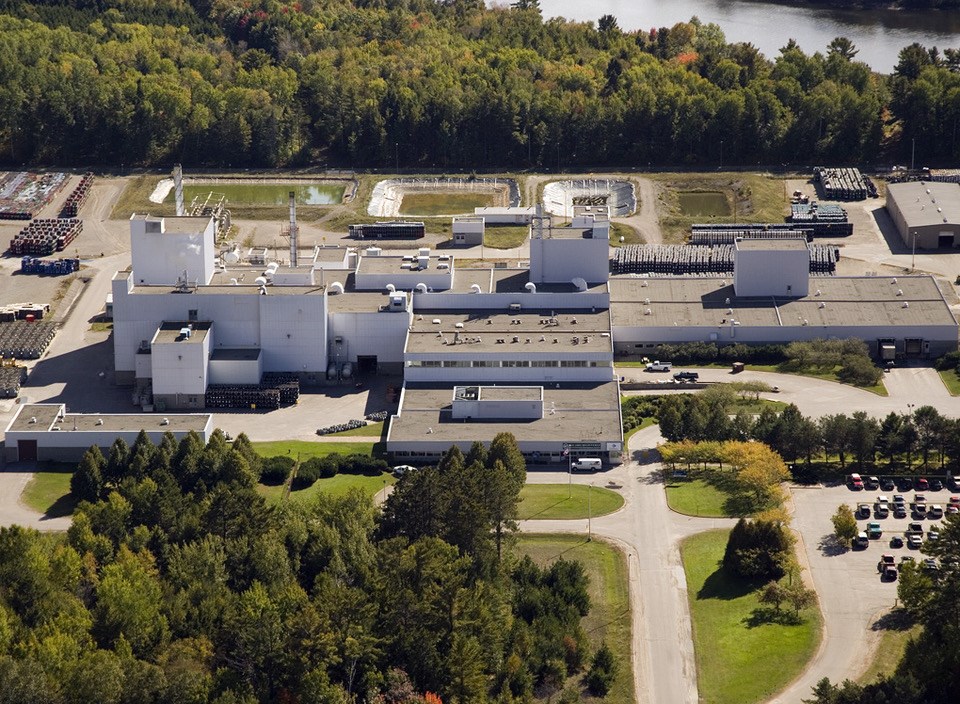Concerns were raised about the environment and consultation with First Nations at a hearing to renew Cameco Blind River uranium facility’s operational licence on Wednesday.
The Canadian Nuclear Safety Commission (CNSC) heard interventions related to the Cameco Blind River uranium refinery’s application for a new 10-year operational licence.
Interventions are part of the CNSC process of gathering information about the licence that takes into consideration support and objections to the application. It is meant to give commissioners a wide range of information before the CNSC delivers a decision on whether to grant or deny Cameco’s application. It also allows for the CNSC to add new requirements to the application process.
Among the intervenors were representatives for the Mississauga First Nation (MFN) assisted by the Canadian Environmental Law Association and resident Joan Morningstar assisted by the environmental group Northwatch.
Cameco representatives were also on hand to respond to concerns raised by intervenors during the highly technical hearing.
The refinery has operated on the site since 1983 when it was owned and operated by a Crown corporation of the Government of Canada. Cameco took over its operation in 1988.
Among the issues raised were allegations by Morningstar of a burial site being exhumed when she worked there during construction in 1982. She also claims air from the incinerator on site has resulted in her and her ex-husband and others living in MFN getting cancer.
Other issues raised included claims by the MFN representatives that ongoing consultation between Cameco and the First Nation, located about one kilometre away, has not been consistent over the years. They also raised concerns about the environmental impacts faced by their community from the operation.
MFN representative Laura Mayer, on the issue of consultation, said the company has a duty to consult with the community when Indigenous rights are “potentially impacted.”
Adam Levine, Team Leader, Indigenous Consultation and Participant Funding at CNSC, said with protective measures already in place at the facility it was determined that regular consultation was required. Also impacting the consultation question were several changes in Cameco management and MFN officials.
“The ongoing operation will not impede on Mississauga rights,” he said.
The New General manager Terry Davis recently replaced former general manager Chris Astles who retired late last year. The First Nation has also seen changes in leadership.
Cameco’s manager of public and government affairs Sara Forsey said the company is committed to working with the First Nation to resolve issues raised.
Some of the intervenors said a shorter five-year licence could allow for greater consultation on environmental and operational issues with the CNSC as the shorter licence period would mean a further information process as part of the five-year renewal.
Cameco officials have stated the facility has a strong environmental record based on regular air, soil and water quality monitoring. Employees regularly undergo urine and lung tests to determine potential impacts from their work.
The refinery currently has about 140 employees producing about 18,000 tons of uranium concentrate to create Uranium Trioxide (UO3), also known as yellowcake powder, which is shipped to a Cameco facility in Port Hope in preparation for use in nuclear reactors.
In an earlier interview, Davis said the facility and its employees are committed to its safe operation. He said each meeting at the plant is started with discussions about safety.
“At Cameco, we begin every meeting and presentation with an emphasis on safety, or as we like to refer to as our safety mode,” Davis told Blind River council in a recent virtual presentation which is part of the licensing process. “As a leader, I am committed to the safety of my team. There is no job so important that we cannot take the time to make it safe.”
Cameco is the world’s largest commercial refinery receiving uranium concentrates from all over the world.
The licence renewal is supported by CNSC staff based on Cameco’s environmental and safety record. The CNSC will consider all issues raised before making its decision.
